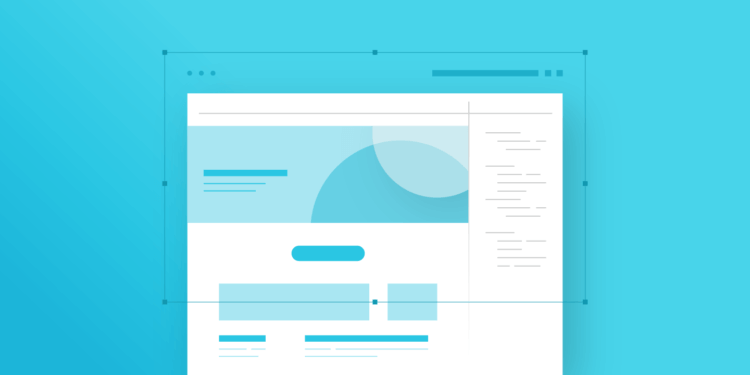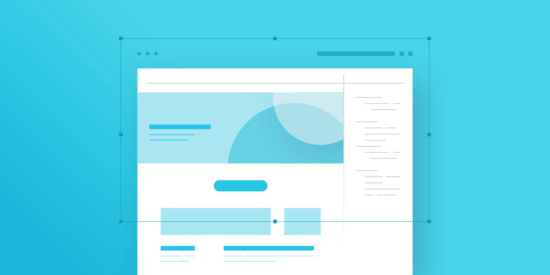Hiring a law firm web designer is a big decision for your firm’s future, and not one that should be taken lightly. Over the past ten years, I have heard countless horror stories of website designs gone wrong. This can cause a negative impact on SEO, and can even result in website downtime.
In an era where websites are bringing in more and more clients for law firms, having a properly designed website is essential to a your firm’s success, both online and off. According to a report from icXlegal, 80% of buyers of professional services will go to your website and evaluate your capabilities, regardless of how they may have heard from you. Most likely, your law firm’s website will be a key touch point for new clients.
The thought of creating a new website can seem daunting. It makes sense to hire a professional, but how do you know that you’re getting the best services available?
Start by asking the 10 questions below to ensure you’re hiring the best law firm web designer for your law firm’s needs.
1. Do you have an in house SEO expert?
SEO, or search engine optimization, is key to the success of your
website. One of the biggest mistakes I see is when a law firm hires a non-SEO-friendly website design company to design its website. Unless the purpose of your website is to create a digital business card, and you don’t care about online marketing, you need to make sure your website is built to today’s SEO standards.
Almost weekly I talk to someone who didn’t properly qualify a company. Normally, these people now realize that they need to completely redo their website. This is an expensive and unnecessary situation that you can avoid altogether by doing a bit of due diligence.
Ask your designer what SEO-friendly websites they’ve built in the past, and check whether these web pages come up in search results for relevant terms you’d type into a search engine. Are these web pages ranking highly in search results for important keywords? If not, you may want to ask around a bit more before making your choice.
2. Does the website load quickly?
Sometimes, designers can go a bit overboard on website designs, adding every element they can or installing every plugin they can find. This often means it takes longer for pages on your site to load. In turn, this can be bad for how search engines rank your page. Search engines like Google prefer sites that work well for mobile, which usually means they prefer faster page load times.
Slow site speeds can also have a negative effect on whether or not site visitors contact you for your services—if a page takes too long to load, they’ll likely become impatient and leave your website before converting to potential clients. According to a study from DoubleClick by Google, 53% of mobile pages get abandoned if they take longer than three seconds to load.
How can you guard against this? Look at sample websites from prospective web designers, and test the speed of these websites. Ideally, these pages should be in the top 90th percentile for page load times using Google’s Page Speed Insights or a tool like WebPagetest.
You may like these posts
3. Who will be hosting the website?
If a website design company insists that it must host your website, think twice before hiring them. While there are benefits to being on a faster server (which your web design company may say they have), these benefits are rarely outweighed by the security of choosing your own hosting service independent of your design company.
Ask who will host your firm’s website, and make sure you’ll have the option to choose your provider yourself, even if you ultimately choose their hosting. Unfortunately, some unethical companies use their control over your web hosting service to hold your website hostage, so you need to guard against this scenario. We recommend our clients use a service like WPEngine, which provides fast, reliable website hosting as well as backups of your website.
4. Is your website built on a common platform?
Building a website using a proprietary system doesn’t necessarily mean a website will be bad, but there are inherent benefits to using common platforms such as WordPress, and these are worth considering.
For example, if you ever need to switch providers, you’ll have a much easier time if you’ve got a commonly used platform like WordPress. In fact, WordPress is the most common content management system for websites, so switching will usually involve simply giving access to your WordPress site to a new designer. However, if your website is built using a proprietary system, you’ll need to migrate your website off of that platform first, which can be a troublesome process.
Be sure to ask whether your web designer will build your site using WordPress, or another common platform. Also, ask questions about potential drawbacks such as the need to deal with automatic updates that can break your site if not managed properly, and potential reliance on third-party plugins, depending on how it is designed. Be sure to ask your web designer about these situations and how they’ll be managed.
In the end, if you have a website built on a common platform, and you control the hosting, you will own every aspect of your website, meaning you’ll be better positioned to handle issues as they arise. You will also have easier access to help from a variety of vendors if you ever need anything done.
5. Will you update my website?
A website isn’t something you can simply set and forget. Once your website goes live, ongoing maintenance and updates will be required, so it’s worth asking your designer up-front what services are covered in your contract. Here are some key points to ask about:
- Will the design company make updates to your site after the initial build?
- Do the charge extra for updates? If so do they charge hourly or another way? What is the rate?
- If they don’t provide updates, are they leaving you with a system you can update yourself, or will you need to factor in paying a different contractor to maintain your site?
6. Will you adhere to state ethics advertising guidelines?
Building websites for attorneys can be tricky if you’ve never done it before. It’s not worth getting disciplined because a web designer put something on your website that they shouldn’t have.
Make sure your web designer is aware of local advertising ethics guidelines in your jurisdiction.
7. Do you develop responsive websites?
Mobile searches now represent over 52% of Google searches. It’s for this reason that Google cares so much about mobile, and is even creating a mobile-first index.
Your law firm’s website should look good on computer, tablet, and mobile displays. The best way to ensure these is through responsive web design. When you choose to use a responsive design for your website, you’ll have one website that simply resizes and hides or shows different elements of a page depending on the size of the device the user is on. This provides a great user experience and is much easier to manage than having to maintain a completely different mobile version of your website.
8. Who owns the content on my website?
Sometimes when you engage with a digital marketing agency, they will also recommend agencies that can help produce content for your site. While it’s true that you’ll need great content for a great website, you need to ask who owns it. Some companies won’t outright give you content—they’ll just lease it to you.
This is risky, because it means a third party may own the rights to content on your website. For example, if someone else suddenly duplicates your blog post on what to do after a divorce that’s driving lots of search traffic to your site from Google, you could end up losing out on potential clients if some of that traffic gets diverted to the new post.
Owning the rights to your content helps prevent it from being published elsewhere. If your web design company makes content recommendations, be sure to ask about who owns the rights to content on your website—and make sure it’s you.
9. What are your qualifications?
At the end of the day, you need to know whether your web designer is qualified in order to know whether they will do the best job possible. First, ask for examples of their work, along with references. If they’re not afraid to provide these, you’re on the right track. You can also ask what awards they’ve won, or which certifications they have.
10. Do you offer a guarantee?
Don’t be afraid to ask prospective design companies if they’re willing to provide a guarantee. While this conversation may vary greatly depending on which company you speak with, you should know your goals and align guarantees around that. For example, you may want to ask, “would you guarantee a 90th percentile page load time on Google’s page speed insights?”
Also, it’s worth thinking about an exclusivity guarantee. Ask, “will you work with my competitor down the street right after you’ve made my website?” Your designer may not be willing to make any guarantees on this front, but it’s worth getting some clarity on exclusivity at the outset of your business relationship.
11. Will you set up Google Analytics & Goal Tracking?
When clients want us to redo their websites, they often ask me to take a look at the data to see how the website has been performing. Sometimes, we find that Google Analytics was never installed in the first place, so making data-driven decisions based on how the website performed historically is very difficult.
Make sure your web designer is willing to install Google Analytics and to set up goal tracking for specific actions like contact form submissions. These actions can indicate that a website visitor wants to be your client, so tracking them will help you gain insight into which pages are performing well and which ones need to be reworked.
Ask the right questions, hire the right law firm web designer
This list consists of only the regular issues I see with new websites from law firms. There’s a lot more to look out for, so trust your gut and don’t be afraid to ask about anything you’re unsure about. Your law firm’s website—and the future of your brand—depends on asking the right questions of potential web designers up-front.
About Casey
Casey Meraz is the founder of Juris Digital, a law firm website design and SEO company. Casey is the author of How To Perform The Ultimate Local SEO Audit, and is passionate about helping law firms increase their book of business through effective digital marketing. Over the past ten years, Casey has helped hundreds of lawyers grow their businesses through online marketing.
We published this blog post in May 2017. Last updated: .
Categorized in: Marketing








